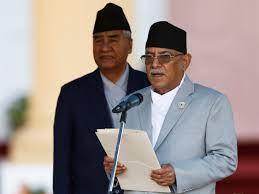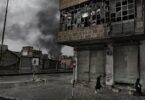KATHMANDU (Agencies): Nepal’s deputy prime minister and three other ministers resigned from the ruling coalition after Prime Minister Pushpa Kamal Dahal said he planned to support a presidential candidate from an opposition party.
Rajendra Lingden, the deputy premier who was also the minister for energy, water resources and irrigation, resigned on Saturday in protest, along with the ministers for urban development and legal matters, while a junior minister assisting Lingden also quit.
“The coalition under which we joined the government is no more intact,” Lingden told Reuters news agency, adding that it would not be “proper for them to continue in the government”. Political analysts said the move did not suggest that the fledgling government of Dahal, a former Maoist rebel who goes by his nom de guerre Prachanda, was in immediate trouble as it still enjoys majority support in parliament. However, they said the turmoil could lead to a new coalition being formed.
Dahal said he would support Ram Chandra Paudel from the opposition Nepali Congress party in next month’s presidential election, instead of the candidate of his coalition partner, the Communist Unified Marxist Leninist (UML) party. He did not give a reason for his decision, though the Nepali Congress party is a former ally of Dahal’s Maoist Centre party.
The PM’s office confirmed that the four ministers had resigned but did not say whether the resignations had been accepted.
Parliamentary elections were held in November but no party won a majority, leading to the formation of a coalition government headed by Dahal. It is his third time in power since his Maoist group abandoned a decade-long armed revolt, in which more than 17,000 people were killed, and joined a United Nations-assisted peace process and mainstream politics in 2006.
The Maoists secured the most parliamentary seats in the 2008 elections and Dahal became prime minister. However, he quit a year later over differences with the president. Nestled between China and India, Nepal has seen 11 governments since it abolished its 239-year monarchy in 2008 and became a republic. The political instability has scared investors and held back growth of its $40bn economy.







